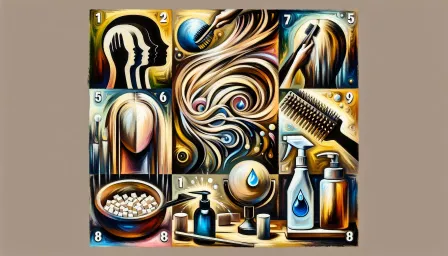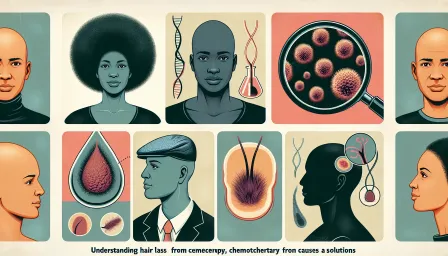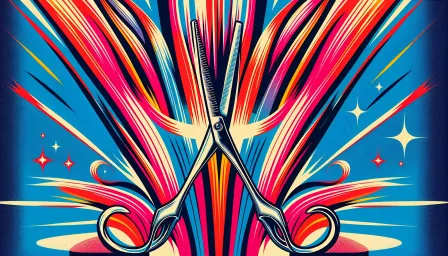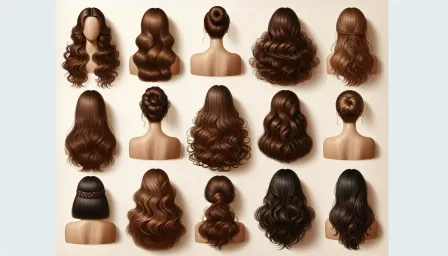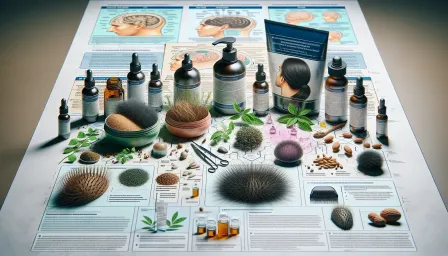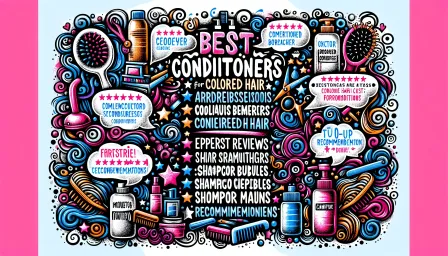Common Dry Scalp Myths Debunked: What You Need to Know
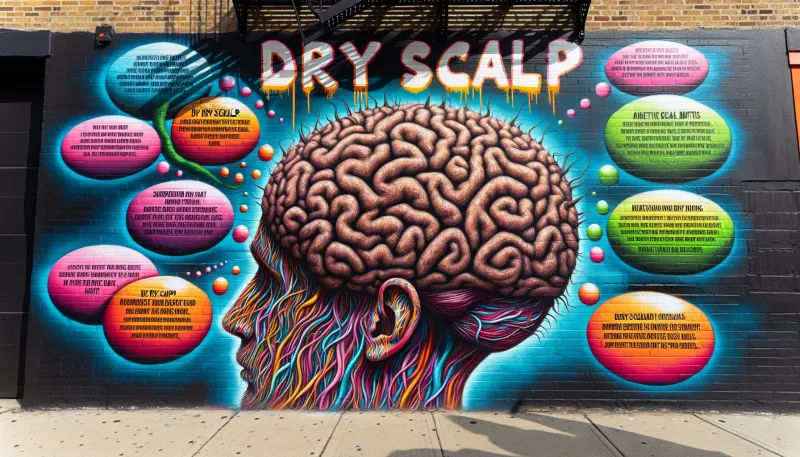
Discover the truth about common dry scalp myths. Learn how to effectively manage and treat dry scalp with expert advice.
Dry scalp is a common condition that numerous people experience, often leading to discomfort and frustration. Despite its prevalence, there are many myths and misconceptions about what causes dry scalp and how to treat it effectively. This article aims to debunk some of these myths, providing you with accurate information and actionable advice for managing and preventing dry scalp.
The Most Common Dry Scalp Myths Debunked
Myth 1: Dry Scalp and Dandruff Are the Same
One of the most widespread myths is that dry scalp and dandruff are the same conditions. Although they share some symptoms, such as flaking and itchiness, they have different underlying causes. Dry scalp results from a lack of moisture in the scalp, while dandruff is usually caused by an overgrowth of yeast. Proper diagnosis and treatment are essential for effective management.
Myth 2: Washing Your Hair Frequently Causes a Dry Scalp
It's commonly believed that washing your hair too often can strip it of natural oils, leading to a dry scalp. However, the frequency of hair washing is less critical than the type of products used. Harsh shampoos can indeed strip your scalp of its natural oils, but using a gentle, moisturizing shampoo can help maintain the right balance.
Myth 3: Oiling Your Scalp is the Ultimate Solution
While applying oil to your scalp can temporarily relieve dryness, it is not a permanent solution. Over oiling can lead to a buildup that might exacerbate scalp issues, including dandruff. It's essential to incorporate a comprehensive scalp care routine that includes moisturizing, exfoliating, and using the right hair products.
Myth 4: Dry Scalp is Only a Winter Problem
Though cold weather can certainly make dry scalp worse, it's not the only culprit. Factors like indoor heating, hot showers, and certain hair care products can contribute to a dry scalp year-round. Maintaining a balanced scalp care routine can help prevent dryness in any season.
Myth 5: Hydration Doesn't Affect Scalp Health
While many people focus on topical treatments, internal hydration plays a significant role in skin and scalp health. Drinking adequate amounts of water helps keep your skin, including the scalp, well-hydrated and less prone to dryness. Ensure you're consuming enough water daily for optimal scalp health.
Myth 6: All Natural Remedies Are Effective
Not all natural remedies are beneficial for dry scalp. Some, such as lemon juice or apple cider vinegar, can actually irritate the scalp further. It's important to research and possibly consult a dermatologist before trying new home remedies. Opt for treatments with scientific backing to ensure safety and effectiveness.
Understanding the Real Causes of Dry Scalp
Environmental Factors
Environmental conditions like cold weather, low humidity, and exposure to sun or wind can cause your scalp to lose moisture. Use protective gear and moisturizing products to protect your scalp from these elements.
Product Use
Certain hair care products, especially those containing sulfates, alcohol, and fragrances, can dry out your scalp. Opt for gentle, nourishing shampoos and conditioners free from these harsh ingredients.
Health Conditions
Underlying health conditions such as eczema, psoriasis, and seborrheic dermatitis can lead to dry scalp. If you suspect a more serious condition, consult with a healthcare provider for an accurate diagnosis and tailored treatment plan.
Effective Solutions for Managing Dry Scalp
Moisturizing Treatments
Use moisturizing shampoos and conditioners designed to hydrate the scalp. Ingredients like aloe vera, coconut oil, and ceramides can help restore moisture balance.
Exfoliation
Regular exfoliation of the scalp can remove dead skin cells and promote healthy cell turnover. Look for scalp scrubs or products containing salicylic acid to gently exfoliate without causing irritation.
Hydration
Ensure your body is well-hydrated by drinking plenty of water. A hydrated body helps maintain a healthy scalp and skin.
Avoiding Irritants
Steer clear of hair products that contain sulfates, alcohol, or artificial fragrances. These ingredients can strip the scalp of its natural oils and lead to dryness.
Professional Consultation
If over-the-counter treatments aren't effective, consult a dermatologist for a personalized treatment plan. They can diagnose any underlying conditions and recommend prescription-strength medications if needed.
Conclusion
Debunking common myths about dry scalp is crucial for effective treatment and management. By understanding the true causes and implementing the right care routine, you can significantly improve your scalp health. Remember to stay informed, choose your products wisely, and consult healthcare professionals when necessary. Healthy scalp habits can lead to long-lasting relief and overall better hair health.






